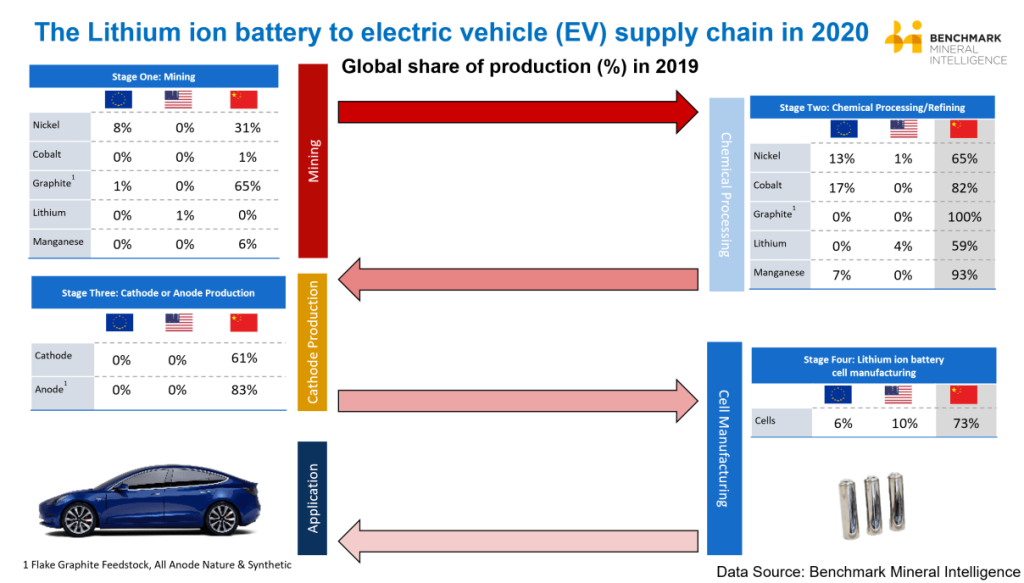Re-shoring is the word of the hour. If the current coronavirus pandemic has shown us anything, it’s that we will need to rethink where we source and produce in the aftermath of COVID — an issue ARPN’s Daniel McGroarty zeroes in on in a new piece for The Economic Standard.
Citing the excitement over the recent announcement of Arizona as the site for Taiwan Semiconductor’s new next-gen semiconductor factory to manufacture their new 5-nanometer (5nm) chips, McGroarty reminds readers that “supply chain starts with supply:”
He points out that production of 5nm chips requires at least three minerals of which the United States currently produces exactly zero (indium, gallium and arsenic), and two others others for which our import dependence is greater than 50% (antimony and germanium) plus one for which data is “notoriously harder to come by” (hafnium). And — you guessed it — “China is the global leader or top U.S. supplier for all six.”
“It’s a harsh reminder that the first word in supply chain is ‘supply.’ And given that Beijing is not too happy about Taiwan Semi joining the 5nm U.S. supply chain team – after Apple, banned-in-America Huawei is Taiwan Semiconductor’s biggest customer — it may not be a good idea to source key semi-conductor materials from China. We’ve already seen Beijing threaten to cut off rare earth supplies to the U.S. as part of their trade war strategy. Do we need to multiply U.S. vulnerability across another half-dozen metals and minerals essential to next generation high-speed computing?
It doesn’t have to be that way: The U.S. has ‘known resources’ of all six, and already includes them on the U.S. Government Critical Minerals List. Are the U.S. sources economic? Not if U.S. laws governing resource development policy make it a decade long odyssey to bring new resource projects into production. All the tax breaks in Arizona won’t help Taiwan Semiconductor if U.S. policy fails to take seriously America’s critical mineral dependency on China.”
McGroarty argues that one way to alleviate the problem of our over-reliance on China for our critical mineral supplies would be to extend Defense Production Act (DPA) designation the President invoked last summer to address our nation’s rare earths dependency not just to the metals and minerals required to the metals and minerals required to produce 5nm chips, but also to the other seven metals and minerals for which the U.S. is also 100% import-dependent.
He closes:
“There’s no question that Taiwan Semi’s engineering team has the expertise to make its next-gen chip a reality. The question concerns the stuff their dreams are made on. Will the U.S. act in time to secure reliable supply of 5nm materials, or will mineral and metal availability become the new “single point of failure” – subject to some future cut-off ordered by Beijing or disrupted by the return of COVID 2.0 — that will render the new Arizona chip investment inoperative?
That’s not a question of science or engineering or who boasts the best single atomic layer deposition techniques. It’s a question of political will. And if the ultimate goal is to reshore American control over our economic destiny and national security, the answer is due right now.”
Read the full piece here.





